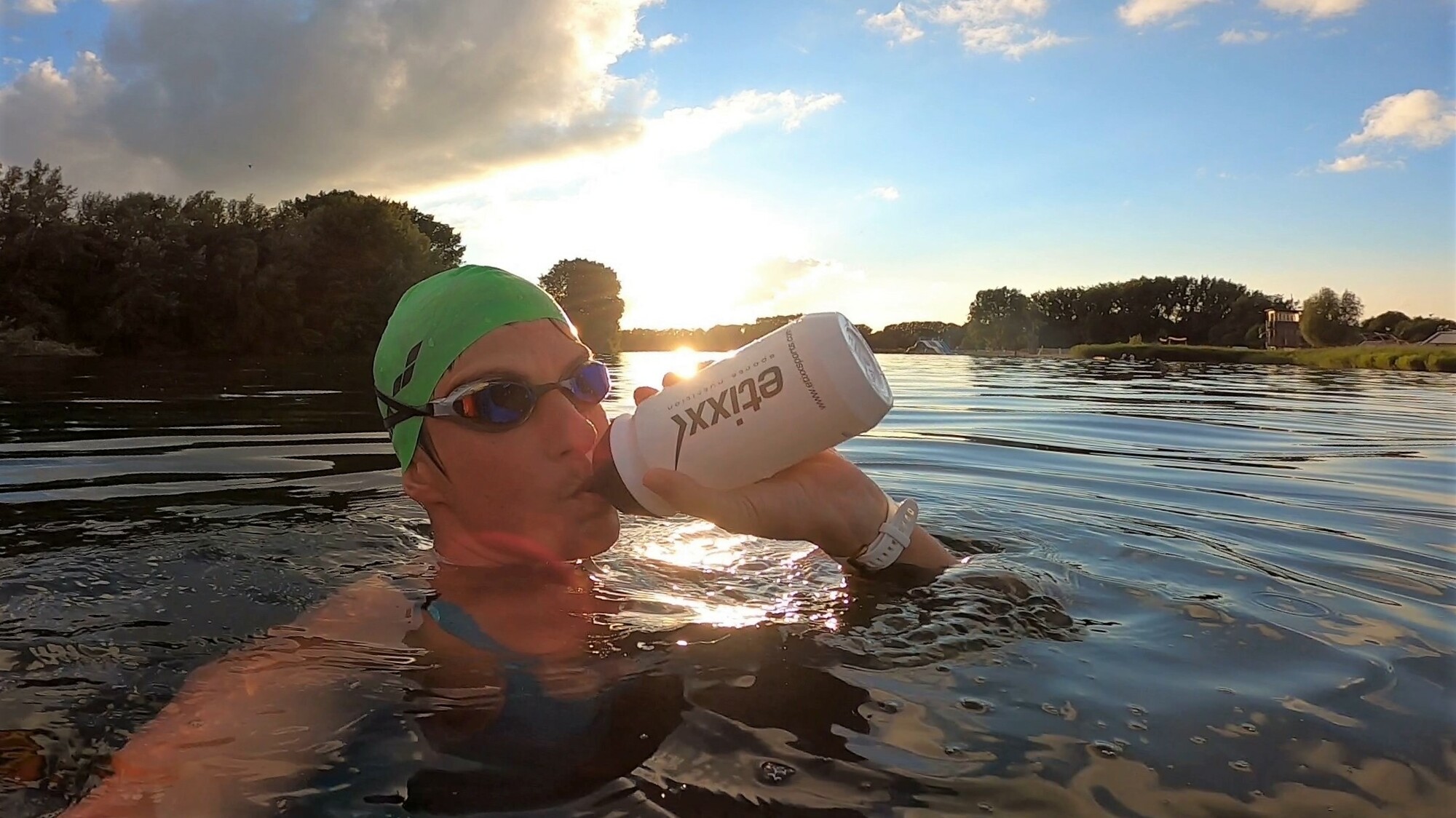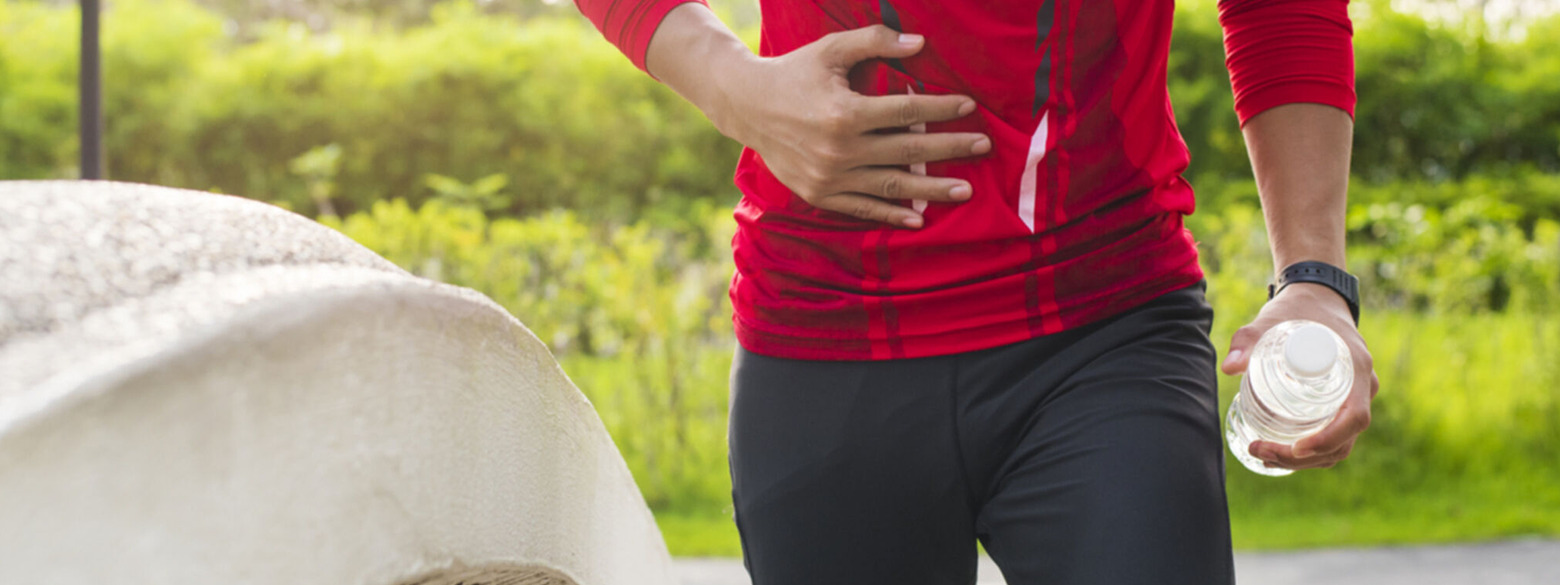What is the impact of 'sports' nutrition and supplements on injuries in athletes?
Friday 15 January 2021

Do you have an injury? Are you in an important period of competition and absolutely want to avoid injury? Then be sure to check out the blog below in which sports dietician Gino Devriendt demonstrates the impact of 'sports' nutrition and supplements on injuries and their prevention.
G. Devriendt,
Sports dietician KAA Gent, Knack Volley Roeselare, Belgian Red Flames
1. INJURY PREVENTION
Can injuries be avoided thanks to good nutrition?
Well, it would be wrong to say that an injury cannot be avoided despite a perfect diet. After all, several factors play a role in the occurrence of an injury. But you already remove a risk factor by respecting a few points of interest.
First of all, we think about our regular diet. The reversed food triangle provides the necessary guidelines to achieve a healthy and balanced diet. But for an athlete there are additional points of attention. Below are a number of important ones in the prevention of (sports) injuries.
- Always make sure you are well hydrated!
Before, during and after exercise. Depending on the intensity & duration of exercise as well as the weather conditions, you can opt for plain water or a combination with an ORS drink and/or isotonic thirst quencher. - Optimise your energy intake in the form of a carbohydrate-rich diet when you wish to exercise intensively. After all, the body cannot build up a large stock of carbohydrates. Replenishing them is therefore the message!
- Ensure a regular intake of proteins at different meals for good recovery.
- Choose the right fats!
Our diet generally contains quite a lot of omega-6 fatty acids due to the addition of e.g. corn oil & sunflower oil to a lot of popular foods (biscuits, cakes, ...) Our slaughter cattle are also increasingly fed corn and wheat instead of grass. On the other hand, we notice a much lower intake of omega-3 fatty acids, creating a poor ratio between these two types of fatty acids. Too much omega-6 in relation to omega-3 appears to promote the risk of inflammation. Good sources of omega-3 fatty acids include fatty fish (salmon, herring, mackerel, ...), certain nuts (e.g. walnuts), seeds & kernels. - Limit alcohol!
Excessive alcohol intake can negatively affect intestinal flora, increasing intestinal permeability and making it easier for bacterial endotoxins to be absorbed into the blood circulation. - Eat colourful with plenty of fruits and vegetables & take unrefined cereal products.
They are good sources of vitamins & minerals that directly or indirectly have a preventive impact on injury.
- Vitamin C & D have an immunomodulatory function
- Certain B vitamins help convert energy from food. Important for intensive exercise with the right energy balance.
- Calcium and vitamin D are both useful for the formation/strength of our bones. Moreover, calcium acts as a regulator of muscle contraction.
- Magnesium has effects such as a membrane stabiliser and is therefore useful in preventing cramps.
Recover optimally during exercise!
Good recovery is necessary for the body to recover properly between efforts and, indirectly, very important to avoid injuries. For example, when an athlete does not allow enough protein in his diet, the muscles cannot recover optimally and the risk of injury is much higher. But also when there is too little energy available and the physical effort requires mainly carbohydrates to train optimally.
Or the body is still dehydrated from the previous exercise and exercise needs to be repeated at a high intensity. This can cause cramps and also eventually lead to injury. Moreover, exercising with an optimal fluid balance is recommended to allow much better ventilation of the absorbed heat.
All this leads us to 3 key words that are important for an athlete in promoting proper recovery but also preventing injury.
Rehydrate
Repair
Refuel
A. REHYDRATE
Most of our body consists of fluid and during exercise it is important to keep this fluid balance largely balanced. A fluid loss of more than 2% should definitely be avoided. After all, after exercise, the body remains active for a while to recover & normalise its core temperature, which can cause some additional fluid loss.
For that, our body possesses a perfect cooling system via the body pores and the possibility of evaporation. But that cooling system can only work optimally if fluid intake is properly respected. Immediately after exercise, aggressive fluid intake is necessary when performing again a few hours later. Ideal then to compensate for 125-150% of the weight loss within the 4-6 hours after exercise. Drinking water is certainly already good but not the best drink to quickly restore fluid balance. Quite a lot of electrolytes (salts) may also have been lost through sweating, which also need to be replenished. If not, the fluid quickly disappears again via the bladder!
Drinks with extra electrolytes such as an ORS thirst quencher or isotonic sports drink can be a good choice when sweat loss is quite high or the time to rehydrate is rather short. In addition, recovery drinks (sports drinks with proteins) also appear to be excellent sports drinks that can already partially restore fluid balance in addition to muscle recovery.
B. REPAIR
Proper recovery of muscle mass is a second essential measure to recuperate well after physical exertion. Adequate protein intake is most essential for this and preferably to be spread well throughout the day. This means a regular intake at the various main meals by means of pure protein sources (cheese, cold meats, poultry, fish, meat, eggs, etc.) as well as a moment in between (yoghurt, quark/flat cheese, drinking yoghurt, etc.) and by possibly providing a suitable recovery drink (chocolate milk, recovery drink, etc.) shortly after exercise.
C. REFUEL
In conclusion, we can also say that carbohydrate intake always remains important for proper recovery when intense exercise is in rapid succession.
However, the speed of intake depends on the time available for recovery. If there is only about 8 hours between 2 efforts, a fast intake is necessary for a good recovery of the glycogen supply. Unless, of course, the intention is to perform in the second effort sober. In that case, the possibility exists for an athlete to briefly abstain from carbohydrates in order to train sober a little later. Such efforts may not be intensive or of very long duration. But if the second effort has to be performed at a higher intensity (or is of longer duration), optimal carbohydrate intake will be necessary. If not, you not only run the risk of training poorly and with less quality, but there is also a high risk of muscle breakdown - due to a lack of energy - which can again be the precursor to a muscle injury.
Lately, we notice more and more athletes who are a bit searching in this. Especially given the sometimes conflicting messages they read or heard somewhere. Some sometimes swear off carbohydrates completely despite being in an intense training period. So let there be no doubt about that, we definitely do need carbohydrates to perform well & intensively.
Replenishing is therefore the message!
A 'rapid replenishment' of carbohydrate stores requires an intake of 1 - 1.2 grams of carbohydrates per kg body weight per hour in the first 4 hours after exercise. In this way, glycogen synthesis can be maximised in preparation for the next exercise. This can be provided by providing a combination of sports drinks, snacks and a main meal within the first hours after exercise. If there is more interval between 2 efforts (>8 - 12 hours), aggressive carbohydrate intake is less necessary, as long as the total requirement is met throughout the day.
2. INJURY
Even during an injury itself, nutrition can play an important role in recovery. After all, inadequate energy and/or protein intake can significantly delay healing or rehabilitation.
In principle, the energy requirement during an injury is usually somewhat lower, but can also remain the same or sometimes even be slightly higher (temporarily). Think, for example, of someone who has to walk on crutches. That takes more energy! So always look at it individually according to the possibility of rehabilitation. A sports dietician can help assess the correct energy needs according to the different phases of rehabilitation.
Besides adequate energy intake, protein intake will also be crucial in recovery. Protein requirements during injury can be as high as 2 grams of protein per kg body weight or, for some, as high as 2.5 grams/kg LG/day! For efficient absorption, frequent intake throughout the day is important. For example, an intake of 4 x 20 grams is more efficient than twice an intake of 40 grams.
Beware of taking anti-inflammatories for too long!
After all, anti-inflammatories undermine muscle building. Alcohol has a similar effect and is therefore also pernicious in too large quantities during your recovery.
Meaningful supplements?
A number of supplements can be useful to speed up recovery after injury.
Below is an overview.
Creatine
Creatine is mainly associated with active athletes whose goal is to gain in explosiveness or growth in lean mass. However, it can also make sense after an injury to start taking some creatine in the active rehabilitation phase for faster recovery.
An ideal dosage is:
- 0.3 grams per kg body weight or up to 20 grams/day in the first 5-7 days.
- 3 - 5 grams/day for a period of 4 weeks
HMB
HMB or Hydroxy-Methyl-Butyrate is the active metabolite of the amino acid leucine. Leucine is known as an essential amino acid (BCAA) with strong anabolic properties. HMB is thus a derivative of it, but appears to have different properties from leucine.
HMB is more likely to reduce muscle degradation, so it also has an indirect positive effect on muscle protein synthesis. So it might also be interesting during rehabilitation for inhibiting muscle breakdown. However, this effect has so far only been demonstrated in the elderly.
BCAA
BCAA or Branched-Chain Amino Acids (leucine, iso-leucine & valine) is the name for a group of 3 important essential amino acids that play an important role in muscle recovery.
They cannot be synthesised by our bodies themselves so dietary intake is necessary. Recovery drinks based on whey isolate are usually already highly concentrated in BCAAs but additional supplementation can certainly be useful.
REFERENCES
- IOC consensus statement: Dietary supplements and the elite athlete Ronald J Maughan, Louise M Burke, Jiri Dvorak, D Enette Larson-Meyer, Peter Peeling6, Stuart M Phillips, Eric S Rawson, Neil P Walsh, Ina Garthe, Hans Geyer, Romain Meeusen, Lucas J C van Loon, Susan M Shirreffs, Lawrence L Spriet, Mark Stuart, Alan Vernec, Kevin Currell, Vidya M Ali, Richard GM Budgett, Arne Ljungqvist, Margo Mountjoy, Yannis P Pitsiladis, Torbjørn Soligard, Uğur Erdener, Lars Engebretsen.
- Response of muscle protein synthesis after whole-body resistance exercise is greater after 40 g than 20 g of ingested whey protein. Macnaughton LS, Wardle SL, Witard OC, McGlory C, Hamilton DL, Jeromson S, Lawrence CE, Wallis GA, Tipton KD.
- Effect of ibuprofen and acetaminophen on muscle protein synthesis after exercise. Am. J. Physiol. Endocrinol. Metab., 282: E551-556.
- Trappe TA, White F, Lambert CP, Cesar D, Hellerstein M, Evans WJ (2002).
- Alcohol, inflammation and gut-liver-brain interactions in tissue injury and disease development
- H Joe Wang, Samir Zakhari, and M Katherine Jung
- Factsheet nutrition 14, nutrition in injury, NOC*NSF
- Importance of a low omega-6/omega-3 ratio for reducing inflammation
- James J DiNicolantonio, James H O'Keefe
- Nutritional Support for Exercise-Induced Injuries.
- Kevin D. Tipton



